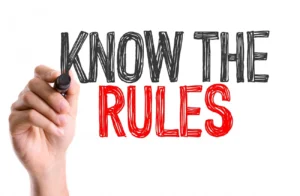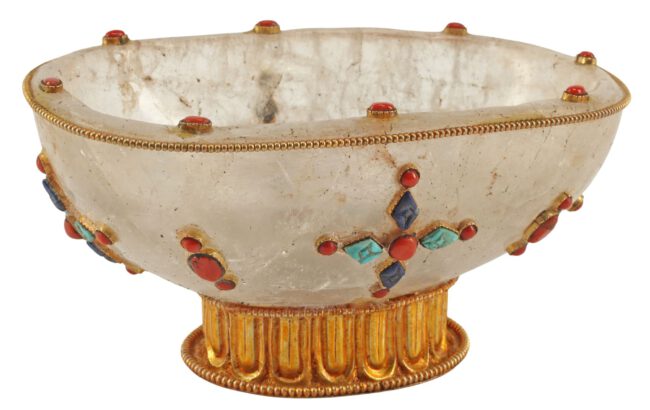 Part of an ongoing series of 5e (2014) Rules notes. See the end of the post for notes on 5.5e (2024) rules.
Part of an ongoing series of 5e (2014) Rules notes. See the end of the post for notes on 5.5e (2024) rules.
Even though it was pretty late in my first big campaign, the cleric’s acquisition of Heroes’ Feast prompted a bit more research on my part about spell components, particularly consumable ones.
I’ve never been a huge fan of spell components because they are, in normal usage, a Pain in the Ass. Like Encumbrance rules, they are only of play value in edge cases. So using Holy Symbols and Arcane Foci and Component Pouches are a useful way around that.
Usually.
Components
There are three basic aspects of spell components.
Verbal (V)
Most spells require the chanting of mystic words. The words themselves aren’t the source of the spell’s power; rather, the particular combination of sounds, with specific pitch and resonance, sets the threads of magic in motion. Thus, a character who is gagged or in an area of silence, such as one created by the silence spell, can’t cast a spell with a verbal component. (PHB)
Practically speaking, Verbal components only come into play in circumstances when something interferes — Silence spells, the need to be Stealthy, casting underwater, gags, etc. The rest of the time, we ignore them.
Somatic (S)
Spellcasting gestures might include a forceful gesticulation or an intricate set of gestures. If a spell requires a somatic component, the caster must have free use of at least one hand to perform these gestures. (PHB)
Again, at my table we only worry about this for cases where something is getting into the way of that “free hand” thing — being bound or restrained, paralysis, etc. I’m sure there are gaming tables where a sword-and-board-wielding Cleric would have difficulties (and, in fact, the Warcaster feat has a feature to overcome this), but mine is not one of them.
Material (M)
Casting some spells requires particular objects, specified in parentheses in the component entry. A character can use a component pouch or a spellcasting focus (found in “Equipment”) in place of the components specified for a spell. But if a cost is indicated for a component, a character must have that specific component before he or she can cast the spell.
If a spell states that a material component is consumed by the spell, the caster must provide this component for each casting of the spell. A spellcaster must have a hand free to access a spell’s material components — or to hold a spellcasting focus — but it can be the same hand that he or she uses to perform somatic components. (PHB 203, emphasis mine)
More specifically answered in the Sage Advice Compendium:
Does a spell consume its material components? A spell doesn’t consume its material components unless its description says it does. For example, the pearl required by the Identify spell isn’t consumed, whereas the diamond required by Raise Dead is used up when you cast the spell.
If a spell’s material components are consumed, can a spellcasting focus still be used in place of the consumed component? No. A spellcasting focus can be used in place of a material component only if that component has no cost noted in the spell’s description and if that component isn’t consumed.
Keeping Focus
So here’s the rub. Spell foci / arcane foci do a lot of cool things — no need to collect components — but they do not substitute for priced consumables. There is no gold coin slot in the side of your holy symbol to consume the cost of such spells. The actual component is needed.
Focuses are spelled out here. Note that I tend not to worry about the holy symbol, etc., being something actually manipulated. Rule of Cool fantasy means that the glowing holy symbol engraved on your shield is just fine (as long as a Rust Monster doesn’t consume your shield). But consumables are the edge case.
Consumables
And, in particular, they are the edge case because they restrict “free” use of very powerful and potentially unbalancing spells. Heroes Feast is an example — its effect can be profound and, as such, is not designed for casual, everyday use. “Every day is a Heroes’ Feast day” is not a common D&D trope, for just that reason. Every cleric at 11th Level has a holy symbol focus, and thus without a consumable restriction, Heroes’ Feasts would (with sufficient treasure) be a daily thing for every hero. It’s not.
Here is a fun database someone worked up of expensive components and when they are consumed. Interestingly enough, while there are a number of spells so identified, most of them use individual items — a diamond, e.g., for Raise Dead.
Note that, again, magic doesn’t let you use 500gp instead of a 500gp diamond. And Heroes’ Feast is special in having a “Gem-encrusted specially crafted bowl” worth 1000gp; you can’t just substitute 1000gp of miscellaneous booty.

(Btw, this also explains why, except in powerful bad guy or rich heroic dude lairs, you don’t find Continual Flame on everything — it literally costs a consumed 50gp ruby.)
But that’s no fun!
It does make a few things more fiddly, which, to my mind, is, I agree, not fun. But the spells we are talking about are — well, if not game-breakers, then close to it. Heroes’ Feast is an incredible spell, as I think everyone admits. Its recipients get for the day (aside from “this complete breakfast”):
- Cured of all diseases
- Cured of all poisoning
- Immunity to poison
- Immunity to fear
- Advantage on all WISdom saves
- +2d10 HP and HP Max
On reflection, that simply can’t be party SOP; it’s effectively a level-up, and could be literally dungeon-breaking (“Module 12: The Tomb of the Venomous Lords of Terror!”). Grinding 1000gp a day for that seems a significant expense, but, at at the level the spell is available, still relatively trivial. The cost (aside from burning your daily 6th Level spell) needs to include a resource restriction.
In fact, it’s more than just “a 1000gp gem-encrusted bowl” which, presumably, one might find in a dungeon stash of royal crockery: the spell notes it must be specially crafted for the purpose of this spell.
I might allow someone in the party with the proper jewelry crafting skills to actually create such a bowl from suitable materials (and, no, the average character can’t just glue some gems to a bowl and call it good).
Alternately, in the proper setting, I can imagine such a crafted item being found in a dungeon or ruined castle. King Flamebeard would, when riding with his knights against their foes, partake of a special magical breakfast meal to guard them from harm … and if you search around real carefully, you might find the hidden crockery cupboard where a Heroes Feast-intended bowl or two were stashed away …
Any differences here in 5.5e?
 In the latest version of D&D, 5.5e (2024), things are pretty much the same. I would expect any major changes to be in particular spell needs — if you are moving between systems, don’t assume anything!
In the latest version of D&D, 5.5e (2024), things are pretty much the same. I would expect any major changes to be in particular spell needs — if you are moving between systems, don’t assume anything!
Focusing just on Material Components here, the definition comes in the PHB (p. 237):
A Material component is a particular material used in a spell’s casting, as specified in parentheses in the Components entry. These materials aren’t consumed by the spell unless the spell’s description states otherwise. The spellcaster must have a hand free to access them, but it can be the same hand used to perform Somatic components, if any.
Okay, that’s pretty much like 5e.
If a spell doesn’t consume its materials and doesn’t specify a cost for them, a spellcaster can use a Component Pouch (see “Equipment”) instead of providing the materials specified in the spell, or the spellcaster can substitute a Spellcasting Focus if the caster has a feature that allows that substitution. To use a Component Pouch, you must have a hand free to reach into it, and to use a Spellcasting Focus, you must hold it unless its description says otherwise (see “Equipment” for descriptions).
Okay a bit more nitpicky in having that free hand stuff (it’s a mini-Somatic inside of the Material Component). At my table, I don’t worry much about that, unless, maybe, the character is bound or paralyzed or something.
Here are links to the 5.5e Arcane Foci and Sacred Foci Holy Symbols.
Special note: The new PHB has a sidebar for creating your own Verbal Components to speak at the table. Which … is a bit too immersive gameplay for me.
